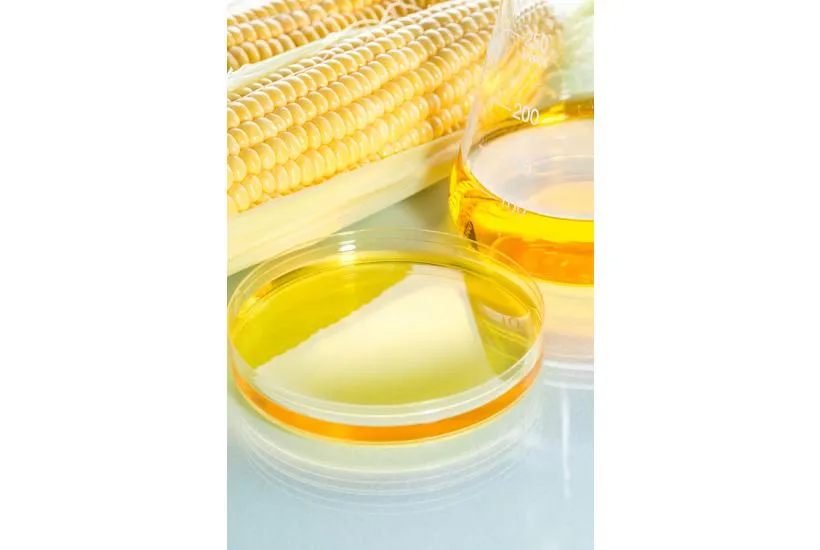High Fructose Corn Syrup: A Danger Hiding In Sweet Sight

The Hidden Sources (and Not-so-hidden Dangers) of High Fructose Corn Syrup
Despite a booming health and fitness industry, the United States is still suffering from an obesity epidemic. More Americans—especially children—are overweight than ever before. Our increasingly sedentary lifestyles play a significant role, as do our poor eating habits.

All too often, we skip breakfast, throwing off our metabolisms and making ourselves more hungry—and more likely to eat more—later. We eat too fast and snack too much between meals. We eat mindlessly. We eat when we're happy or when we're sad or when we're mad or late at night when we should be sleeping. We eat junk food when because it's more convenient than preparing healthy meals, and when we go grocery shopping, we grab things that taste good or because the package looks good. And we seldom read food labels. When we do, we don't always understand them.
If we spent more time reading food labels, we'd notice a lot of things. We'd notice how many servings of our favorite foods are recommended versus how many we actually eat. (Hint: We eat too many.) We'd notice how much sodium, fat, and carbs can be found in many of the foods we eat. And we'd especially notice how much sugar we're consuming. And when it comes to sugar, much of the sweet stuff in the foods on the shelves comes in the form of high fructose corn syrup (HFCS).
High Fructose Hiding Places
High fructose corn syrup is derived from genetically modified corn, and since the 1980s, food manufacturers have been adding this cheap form of sugar to countless products. You probably know that HFCS can be found in sodas and breakfast cereals, but consider this staggering list of other packaged foods where it can also be found:

- Breads
- Cakes
- Granola and cereal bars
- Salad dressing
- Candy
- Yogurt
- Fruit juices
- Stuffing
- Ketchup
- Pancakes and waffles
- Miracle Whip
- Pop Tarts
- Cookies
- Crackers
- Cough syrup
- Cottage cheese
- Baked beans
- Tomato paste
- Pickles
- Relish
- Canned fruit
- Applesauce
- Peanut butter and jelly
- Ice cream
- Maple syrup
- Steak sauce, tomato sauce, and barbecue sauce
- Lunchables
HFCS and Your Health
The prevalence of high fructose corn syrup is concerning not only because the sweetener is very addicting, but also because studies show it can contribute to numerous serious health problems.
Unlike with beet or cane sugars, HFCS causes your body to release endorphins, dopamine, and seratonin, which—just like with cocaine and other drugs—stimulate your brain's pleasure center and leave you wanting more. This can be particularly dangerous, as increased consumption of HFCS can lead to an increased risk of weight gain, Type-2 diabetes, hypertension, elevated “bad” cholesterol levels, liver damage, and mercury exposure.
The best strategy is to avoid HFCS completely. While the sweetener is found in countless products, it is possible to avoid it.

Consider these tips:
- Do your best to stay away from processed foods. If you can't resist, make sure to read food labels. If a product contains HFCS, put it back on the shelf and pick out an alternative. (Go ahead and grab a garbage can and do a sweep of your kitchen, too.)
- Cut back on the fast food. Not only is HFCS found in grocery items, but it also food in many fast food items.
- Eat local and organic. Not only are local and organic foods more healthy for you in general, but there's little likelihood that anything you buy at your local butcher shop or farmer's market will contain HFCS.
- Eat more fruits and vegetables. Eat your fruits, don't drink them. HFCS is found in many canned fruits and fruit juices. Go for fresh fruits instead. And the same goes for veggies.
- Stop drinking soda. Not only does soda contain virtually zero nutritional benefits, most soft drinks on the market contain HFCS. You may have noticed a new push for "retro" colas being driven by many of their earlier formulations made with real sugar.
February 1, 2016